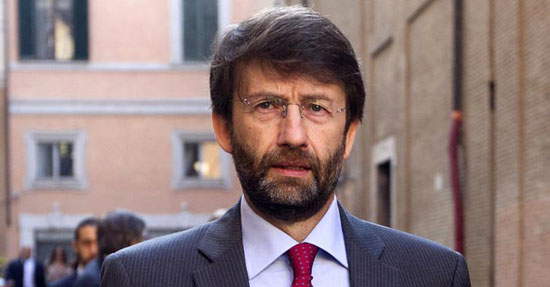Specialized tour guides? Go work in Slovenia. Franceschini and the weakness of politics
The matter is quite well known: Italy recently had to enact a law, Law 97 of August 6, 2013, which through one of its articles (Article 3) will allow guides from other European countries to be able to practice their profession in Italy. This is to make sure that our country does not go and break a European Union directive that stipulates that a worker licensed in his or her own country cannot be prevented from practicing his or her profession in another member state of the union, although those in the industry believe that the profession of tour guide does not fall under the directive that led Italy to enact the law (and questions to the European Parliament have also started on the matter). Taking it at face value, however, this is a directive that conflicts with Italian law: given the vastness of our cultural heritage, in Italy the tour guide is licensed on a provincial or regional basis. He must, after all, have a thorough and serious knowledge of the heritage of his area in order to communicate it to visitors in the most competent and professional manner possible. Law 97 itself, however, stipulates that several “protected” sites, included in a special list, cannot be illustrated to tourists and visitors without proper licensing.
This list of sites has yet to be updated, but the implementing decree of Article 3 of the above law, which Minister Dario Franceschini is preparing to issue, may provide for an exam for guides (already licensed) in order to be able to practice the profession on these sites: it is a bit like if in order to continue to use your car in the alleys of historic centers, you are asked to give another specific exam. And that’s to sum up, briefly and surely tersely, two years of laws, decrees, regulations and protests.
Well: it happens that for March 5, Confesercenti Toscana and other trade associations, indicate a Flash mob in Florence, in Piazza della Signoria, to ask the minister to take into account the needs of 22,000 tour guides operating on the Italian territory, who would see their already very difficult job (tour guides are self-employed with VAT numbers, with all that that entails) and therefore their economic security jeopardized. It then happens that the minister receives a delegation of tour guides in the Palazzo Vecchio. According to statements made by Valentina Grandi, president of Confesercenti’s tour guides, to the guides’ requests (in particular, to approve in the decree the figure of the specialized tour guide without making them go through additional and useless exams), the minister reportedly replied that he was going to work in Slovenia, because Europe would not recognize either the specialization of guides or the list of protected sites, as the latter would be too long.
 |
| Dario Franceschini |
With a theatrics hardly befitting a civilized country, the minister, last night, was quick to deny in a Facebook post that he had invited tour guides to go work in Slovenia. Declaring himself, moreover, astonished that many on the web “believe it without a doubt or the slightest verification.” I do not believe that the president of the Confesercenti tour guides is such a clueless person as to send a false statement to the press agencies (because whoever sends communiqués to Ansa, assumes full responsibility, including legal responsibility ), nor do I believe that many eyewitnesses who are commenting on her post, confirming Valentina Grandi’s version, are telling falsehoods in order to discredit Minister Franceschini.
The problem is not so much the arrogance of the political class, to which we have long been accustomed, and the fact that a minister, rather than apologizing to tour guides, is making them out to be liars and schemers: the problem lies in the fact that our political class, besides being arrogant, enjoys a very weak and very uncredible position internationally. A policy that is so weak and so lacking in credibility that it fails to protect the interests of the workers who inhabit the soil of the country it heads. The Constitution, in Article 1, says that Italy is a republic founded on work: it will be necessary to add that it is founded, yes, on work, but on the work of others, since our politicians are incapable of making their case in the European forum.
In any case, Franceschini’s response is irrespective of what our position is on how our government is handling this issue, a position that would not have changed one iota even if the response had been as elegant as possible, or even if it had been the product of invention. Tour guides are indispensable figures for the promotion and enhancement of the territory: it is not possible to fill one’s mouth with big words like, precisely, “valorization,” “beauty,” and “tourism,” without a serious confrontation with those in the field of valorization, beauty, and tourism who work every day, forced to fight on the one hand withsquatting, on the other hand with an asphyxiating bureaucracy and an unsustainable tax burden, and on the other hand still with a weak and inconclusive politics, incapable of doing the interests of the citizens it has the sacred duty to administer fairly. Is it more important to abide by perhaps misinterpreted European impositions, or is it more important to safeguard the work of a large group of citizens, and to safeguard the specificities of our territory by entrusting it to serious and specially trained professionals? Most importantly: is it or is it not important to respect the sacrifices that thousands of people have made to be able to safely and passionately perform a job they have dreamed of, and for which they have studied hard? Is it or is it not important to respect autonomous people to whom the policies of this government and previous governments recognize fewer and fewer guarantees? Is it or is it not important to recognize the work of those who every day lovingly and with a sense of duty make tourists who come here to learn about our culture discover our immense heritage? Is it or is it not important to listen to workers who are in daily contact with foreigners to whom we often have to apologize for the embarrassing behavior of our politicians? Is it or is it not important to respect those who fight every day against the prejudices that sink our country’s credibility, demonstrating not only that our country has given so much to the whole world, but also that, for a political class that has the name of being largely composed of dishonest and incompetent rapacious, there are so many people who instead earn their living with honesty and competence? In short: is it or is it not important to respect working people?
Warning: the translation into English of the original Italian article was created using automatic tools. We undertake to review all articles, but we do not guarantee the total absence of inaccuracies in the translation due to the program. You can find the original by clicking on the ITA button. If you find any mistake,please contact us.



























